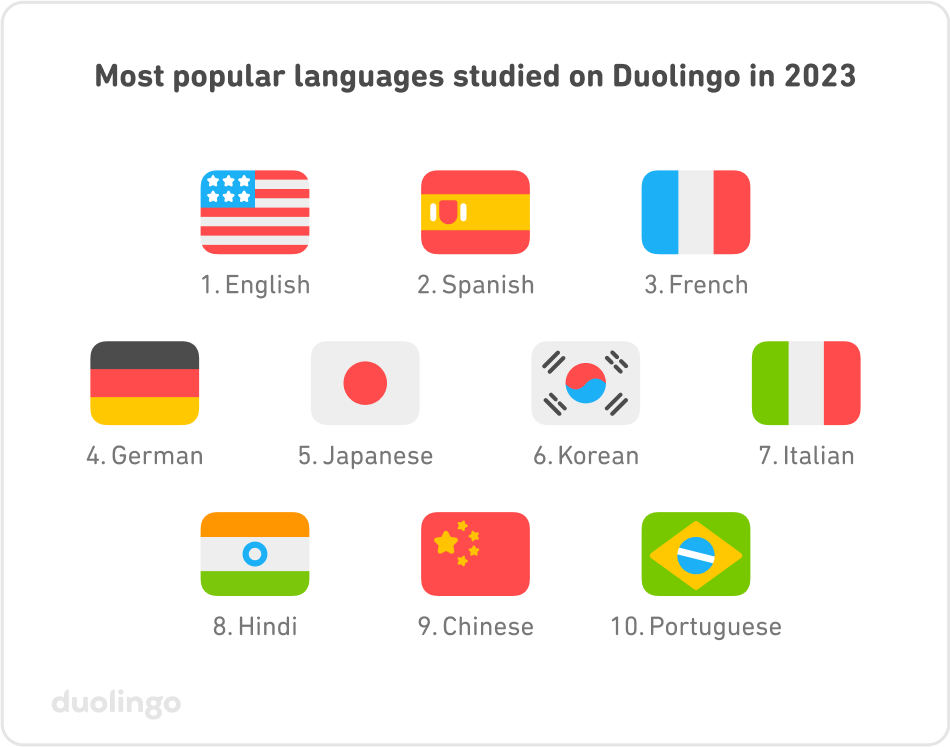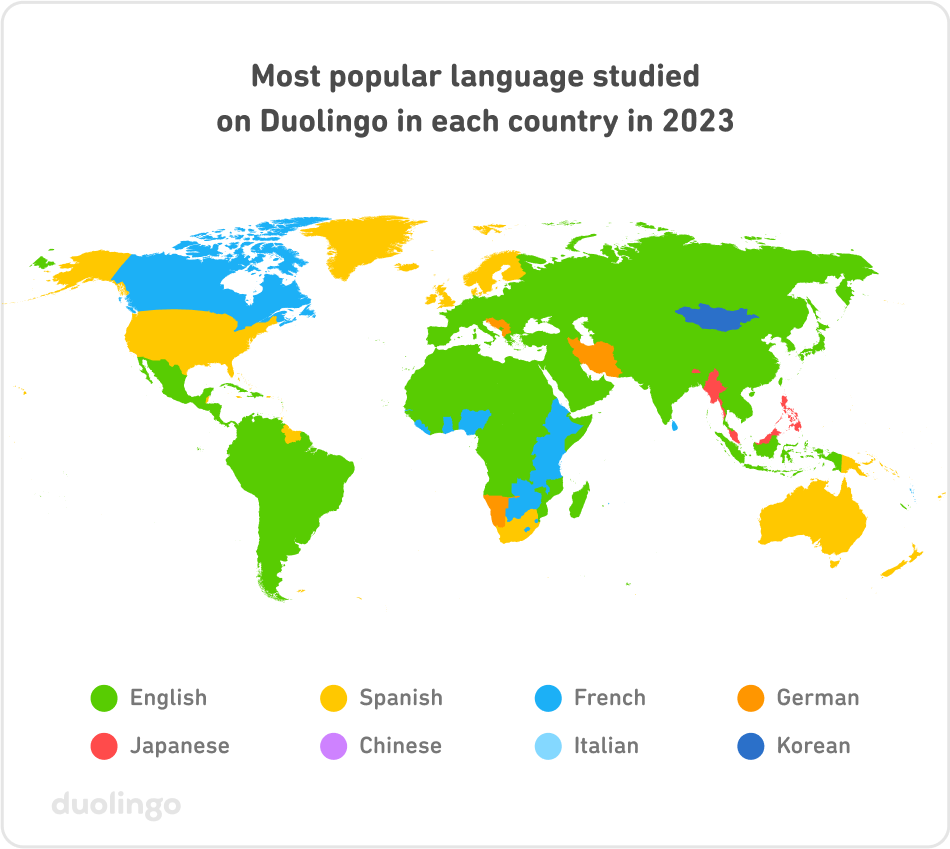Global trends and cultural changes influence everything, and language learning also continually shifts. The 2023 Duolingo Language Report, authored by Cindy Blanco, offers a fascinating glimpse into these transformations. From the persistence of English as a global universal language to the rising popularity of Korean, Portuguese, and Ukrainian, this report reveals the preferences and patterns of millions of language enthusiasts worldwide.

✅ AI Essay Writer ✅ AI Detector ✅ Plagchecker ✅ Paraphraser
✅ Summarizer ✅ Citation Generator
Key Takeaways
- English remains the top language choice, with its study growing in 122 countries.
- The consistent interest in Ukrainian highlights global support and empathy.
- The surge in Portuguese learning reflects shifting cultural and geopolitical interests.
- Examining learner demographics reveals varied motivations and commitment levels across different nations and generations.
The 2023 language learning scene has been marked by notable changes and surprises. While some trends are continuations of past patterns, others reflect the rapid changes in our global society. This year’s report highlights how world events, cultural shifts, and generational differences shape the landscape of language learning.
The Global Linguistic Leader
English has maintained its position as the most popular language to learn in the world, topping the list in 122 nations, three more than the previous year. Its importance for economic and educational success is obvious in Asia. In India, for example, 40% of English learners say education is their primary motivator, whereas in Vietnam and China, the rates are 50% and 54%, respectively. English learners in India are the most diligent in terms of lesson completion, participating in most classes every day.

Portuguese: A New Favorite on the Rise
Portuguese made a significant leap in global popularity, overtaking the Russian language for the 10th spot. This shift reflects a decreased interest in Russian due to the war in Ukraine and a growing fascination with Brazil and Portugal. Among new Portuguese learners, 72% are under 30, indicating its popularity among younger generations. The language is particularly prevalent in South American countries, with it being the second most popular language in Bolivia, Paraguay, Uruguay, and Venezuela. Notably, about 1 in 5 Paraguayans and Uruguayans are studying Portuguese.
Ukrainian: A Language of Global Solidarity
Ukrainian language learning has maintained a steady interest in 2023. Worldwide, 37% of new Ukrainian learners are studying the language to connect with people, a considerably higher proportion than for other languages. The countries with the most Ukrainian learners include the U.S., the U.K., Poland, Russia, and Ukraine itself. Australian learners show the most commitment, spending the most time learning Ukrainian, followed by learners in Canada and Finland.
Global Patterns in Language Learning
In 2023, Belarus, Japan, Hungary, Russia, and Ukraine emerged as the countries with the most dedicated language learners. Japan, previously holding the top spot, is now second, with Ukraine moving up to fifth. These statistics reveal high average learning times across all learners in these countries. Additionally, the report uncovers generational differences in language learning: Gen Z learners often choose languages for personal or political reasons, while older generations, particularly Boomers, show more consistent study habits.

Conclusion
The 2023 Duolingo Language Report comprehensively overviews current global language learning trends. The steadfast popularity of English, the ascent of Portuguese, the empathetic response to Ukrainian, and the varied demographics of language learners, all highlight how cultural, societal, and geopolitical factors significantly influence language learning choices. These trends underline the continuous interest in linguistic diversity and the importance of language as a tool for global connection and understanding.
Follow us on Reddit for more insights and updates.





Comments (0)
Welcome to A*Help comments!
We’re all about debate and discussion at A*Help.
We value the diverse opinions of users, so you may find points of view that you don’t agree with. And that’s cool. However, there are certain things we’re not OK with: attempts to manipulate our data in any way, for example, or the posting of discriminative, offensive, hateful, or disparaging material.